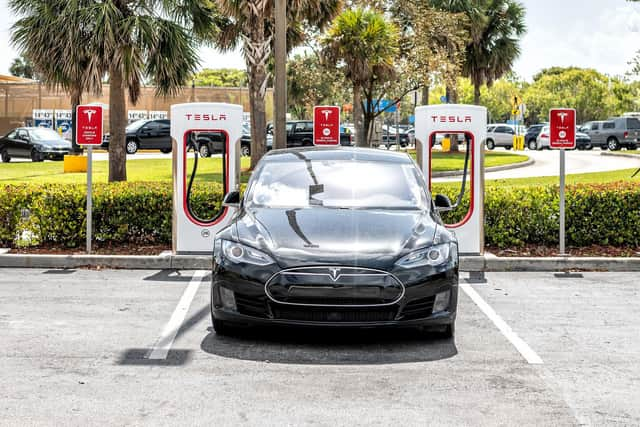Parts shortage hits new car sales worse than lockdown: EVs provide bright spot
Registrations of new cars UK-wide fell by 24.3 per cent last month compared with June 2021, according to figures from the Society of Motor Manufacturers and Traders (SMMT).
Global shortages of components such as semiconductors continue to hamper manufacturers' ability to fulfil demand, the trade body said. Drivers are often having to wait months to take delivery of some popular models.
Advertisement
Hide AdAdvertisement
Hide AdThere were around 800,000 new cars sold during the first half of the year - a near-12 per cent reduction compared with the same period in 2021, and represents the industry's weakest January-June performance since 1992, except for 2020, which was affected by the coronavirus pandemic.
SMMT chief executive Mike Hawes said: “The semiconductor shortage is stifling the new car market even more than last year’s lockdown.
“Electric vehicle demand continues to be the one bright spot, as more electric cars than ever take to the road.
“With motorists facing rising fuel costs, the switch to an electric car makes ever more sense and the industry is working hard to improve supply and prioritise deliveries of these new technologies given the savings they can afford drivers.”
Jim Holder, editorial director of magazine and website What Car?, said car buyers were being hit by a combination of issues.


New car orders are delayed, while rising energy bills are pushing up manufacturing costs, which is increasing prices. “The result is longer waiting times on cars which will cost more to buy,” he warned.
Alex Buttle, co-founder of used car marketplace Motorway.co.uk, said: “It’s no surprise to see new car sales falling but it’s promising that EV sales continue to buck the trend with people making the leap to electric, to both avoid rising costs at the pump and to do their bit for the environment.
“If the government can now deliver on its charging infrastructure plans, based on the recent trajectory it will only be a few years before EV sales outstrip petrol and diesel sales combined.”
Advertisement
Hide AdAdvertisement
Hide AdJames Fairclough, chief executive of AA Cars, said: “June’s slide in new car sales caps off a miserable first half of the year. The continued improvement in pure EV sales is the only crumb of comfort in an otherwise stubbornly downward trend.
“Yet there are some tentative signs of recovery in the supply of the new cars, with separate SMMT data showing that the number of vehicles rolling off UK production lines increased in May - the first expansion after ten straight months of decline.”
Separate figures from green motoring consultancy New AutoMotive showed that 16 per cent of new cars registered in June were pure electric, up from 11 per cent during the same month last year.
The company's co-founder, Ben Nelmes, said electric cars “defied gravity” last month by “continuing to grow while overall new car registrations were down by a quarter”.
He added: “The supply of electric vehicles is the biggest barrier to cleaner road transport in the UK.”
Comments
Want to join the conversation? Please or to comment on this article.